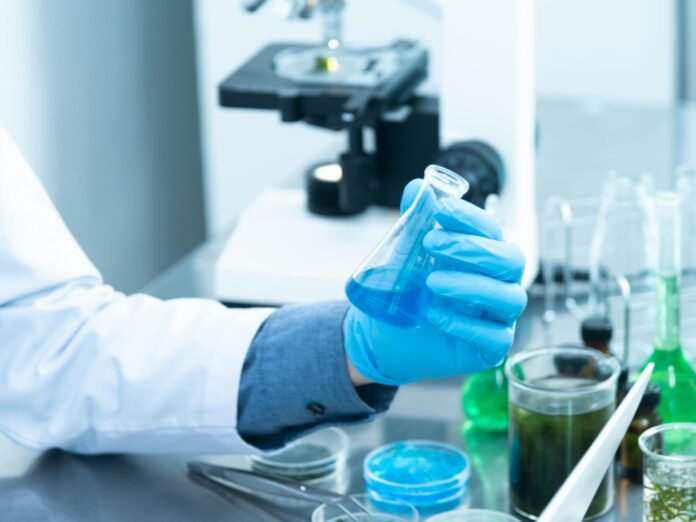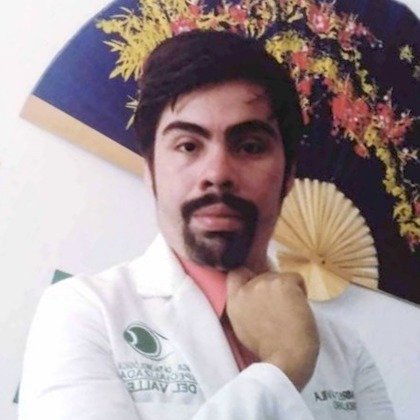Cancer is one of the chronic diseases that represents the greatest morbidity and mortality in the population worldwide. Despite the existence of multiple conventional treatments with a certain degree of proven effectiveness, an increase in the trend of preference for alternative therapies by cancer patients has been reported.
One of the determinants for preferring alternative therapies is related to the frequency of unwanted side effects associated with conventional treatments.
Amygdalin has been proposed as an alternative therapy, but the extent and nature of the literature regarding this molecule are unknown.
Cancer affects an important population group in the world, for which progress has been made in different alternatives for its treatment. The treatment choice is made based on three main objectives: 1) cure, 2) reduction in tumor size, or 3) palliation.
Cancer treatments include:
Surgical procedures.
• Immunotherapy.
• Genotherapy.
• Radiotherapy.
• Chemotherapy (including hormone therapy and molecular treatment).
• Stem cell transplant.
• Bisphosphonates.
• Complementary therapy and recently goal-directed medicine.
The treatment can be used alone or in combination with others, depending on the type of cancer and its stage.
The therapeutic principle of radiotherapy is to damage cellular DNA directly OR indirectly. This mechanism causes apoptosis, necrosis or mitotic catastrophe in the tissue that is exposed.
Among the side effects of this therapy, fatigue, anorexia, nausea, and vomiting have been described.
Chemotherapy also has an effect on DNA. The mechanism of action of drugs that affect DNA differs according to the phases of the cell cycle that induce apoptosis. The pharmacological groups describe the following: alkylating agents, antimetabolites, platinum-derived agents, and topoisomerase inhibitors.
Among the toxic effects most frequently associated with the use of conventional cancer therapies are vomiting, mucositis, diarrhea, Constipation, bone marrow suppression, alopecia, skin reactions, pain, fatigue, depression, gonadal dysfunction and pulmonary fibrosis.
Reports worldwide indicate that side effects are one of the main ones. Another predominant factor is the availability and access to them. While in the United States and Europe, the frequency of use is reported between 30% to 40%, in China, the frequency of use has been reported close to 80% of patients with cancer.
The reasons reported by patients as justification for the use of alternative therapies in Turkey included prevention of disease progression (29.9%), reduction of toxic effects of chemotherapy (22.3%) and maintenance of psychological well-being (4%).
Origin and mechanism of action of Amygdalin
In 1803, J.C. Schrader first discovered Amygdalin, and in the same year, Pierre-Jean Robiquet, a French chemist, isolated Amygdalin from bitter almonds.
Amygdalin is one of the natural compounds used in traditional Chinese medicine, and a possible antitumor effect and attenuation of adverse reactions to radiotherapy and chemotherapy have been attributed to it.
Immunoregulatory, antioxidant, antibacterial and anti-inflammatory effects
Its antitumor effect was described and published in 1979 by Lea and Koch in the Journal of the National Cancer Institute (JNCI). The term “Laetrile” refers to a semi-synthetic compound that represents an acronym used by the pharmaceutical industry, while “mandelonitrile” is attributed to Amygdalin in its purified form. It is available in oral and parenteral presentation (intravenous and intramuscular).
The antitumor effect of Amygdalin occurs due to its cytotoxic effect and the alteration of the cell cycle that induces apoptosis. Using flow cytometry, a study in vitro measured the effect of exposure on prostate tumor cells to different Amygdalin concentrations, showing an increase in the G0/G1 Phase and a significant decrease in the G2/M phase and secondary synthesis to the blockage of expression of genes coding for the cell cycle proteins CKD1 and CKD2, Cyclin A and B.
In patients with colon cancer, a dose of 5 mg/ml for 24 hours, reduced the gene and protein expression of SNU-C4 cells in relation to the cell proliferation. Cancer cells produce hydrogen cyanide (hydrogen cyanide) as a final metabolite.
The hydrolysis of the glucosidic bond between the sugar and the Amygdaline Ail Groups, catalyzed by the enzyme B-Glucosidase, releases cyanhydric acid, which inhibits cytochrome-C oxidase, the terminal enzyme of mitochondrial oxidative phosphorylation. Consequently, cyanide inhibits the production of adenosin triphosphate (ATP), reducing the energy levels of cells and inducing cell death.
In vitro studies of animal tissue show that normal cells contain the enzyme thiosulfate sulfurotransferase, also known as “rhodanase,” which can convert hydrocyanic acid into its non-toxic state. This enzyme is absent in tumor cells, which explains their vulnerability to cyanide.
Additional studies in patients with breast cancer showed that the use of Amygdalin increased the expression of the proapoptotic protein Bax and decreased the BcL-2 together with procaspase-3, regulating the proteins involved in apoptosis.
Additionally, Amygdalin would have anti-inflammatory effects, blocking the NF-kb and NLRP3 signaling pathways, which in turn reduce the expression of pro-inflammatory cytokines (pro-IL-1b) induced by lipopolysaccharides, destroying the tumor microenvironment and, at the same time, preventing immune evasion, growth, and metastasis.
Potential benefits of vitamin B 17
1. Antioxidant properties: Laetrile has antioxidant properties that can help protect cells from damage caused by free radicals, which could benefit overall health.
2. Possible anti-inflammatory effect: Some studies have suggested that laetrile could have anti-inflammatory properties, which could help reduce inflammation and improve certain health conditions.
3. Possible analgesic effect: Laetrile could have analgesic properties, which could help relieve pain in certain situations.
Although we can see that the effects of vitamin B 17 have interesting virtues in the genome and metabolism of certain cancers, it is essential to consult with your doctor or health professional to prevent side effects and damage to your health.
Remember that cancer is a multifactorial and very individual disease; therefore, not all of its therapies are feasible for all people.


